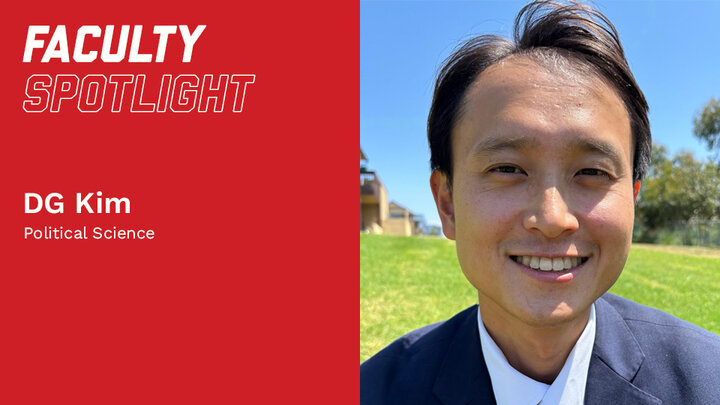Title: Assistant Professor
Department/area: Political Science
How and/or why did you choose your field?
I was first drawn to the field of political science and international relations when I encountered a Korean-translated version of Samuel P. Huntington’s The Clash of Civilizations during my early adolescence. In his sweeping and prophetic analysis, the book ignited my imagination with its vision of a world in which human minds—shaped by a variety of cultural identities and worldviews—directly influence the prospects for global peace and conflict. When I later came to the United States for my undergraduate education, the personal experience of being identified as a ‘racial’ minority once again deepened my interest in identity and politics. Through my close study of imperial Japan’s tragic pan-Asian venture, I came to realize that no subject fascinates me more than the possibility of another 'racialized' conflict between the United States and a resurgent China. This question became the central focus of my (post)doctoral research a nd continues to preoccupy my thinking today.
Research
To deepen our understanding of how great power rivalry both fuels—and is fueled by—racialized fears and resentments, I am currently working to establish a general theoretical framework that explains this phenomenon using concepts drawn from international relations, psychology, and political philosophy. At UNL, I am excited to expand this research through experimental and other rigorous scientific methods, including neuroimaging studies.
Classes taught
Building on my research expertise and prior teaching experience, I will begin teaching 'Race in International Politics' in the Political Science department at UNL this fall. The course offers an in-depth survey of key historical events and foundational theories from international relations, psychology, and race and ethnic studies, all of which shed light on the sources and consequences of recurring racialized conflicts between human societies. It is especially well-suited for students seeking to develop the ability to analyze broad historical patterns using both cross-disciplinary theoretical insights and cutting-edge scientific knowledge.
How do you work with students outside of classes?
I aim to establish a research lab—and eventually a research center—that promotes student-driven research on key contemporary issues in human and international relations. Through external funding and broad outreach activities, it will serve as a hub for opportunities for students to engage with cutting-edge research and explore creative ways to contribute to local, national, and global communities.
What do you enjoy doing outside of work (hobbies, others interests)?
I enjoy traveling the world with my family, exploring both the rich variation and the shared foundations of human civilizations, both past and present. My journey will continue at UNL, and I can't wait to share my stories.




